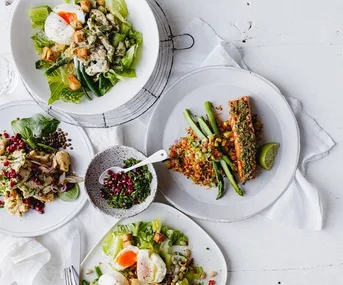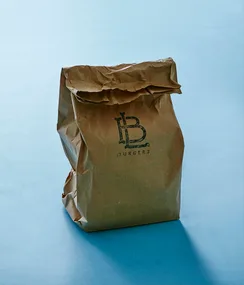“Why do you want Asian food? Dietitian tell you?” asks the tiny Singaporean grandmother who’s greeted me at the door of her western Sydney apartment block and handed me a plastic bag holding two takeaway containers. One’s filled with ayam sioh, sticky chicken drumsticks, and the other with Nyonya acar, a sweet-and-sour vegetable pickle. The question is asked kindly but cautiously. I’ve just bought dinner from a stranger’s home, and the woman who made it seems as astonished by the transaction as I am.
Welcome to the world of underground home cooking, where passionate cooks expand their family meals into cottage businesses. Typically, they’re making the food of their homelands for friends and neighbours, often cuisines that can be hard to track down commercially such as Egyptian, Filipino, Indonesian, Spanish and Pakistani. And sometimes they’re playing fast and loose with the law, flouting food hygiene or business regulations or both.
That explains the wariness on the part of the Singaporean woman who’s just provided my dinner. More often than not, the cooks and customers who operate in this culinary grey area do so through word of mouth within their own communities. But some take the risk of offering their services on Gumtree or Facebook Marketplace. “Homemade Egyptian food, halal ingredients, if you interested inbox me,” reads a typical advertisement, many of which appear on the sites and disappear shortly afterwards as the sellers try to stay under the radar.
For a buyer, the shadowy nature of the process means it feels a little like conducting a drug deal. Inbox requests go unanswered or online conversations grind to a halt without explanation. But if you luck out and manage to arrange a sale, the perseverance is worth it.
One evening I drive into Sydney’s western suburbs again to try homemade Egyptian hawawshi. The thin discs of bread, the size of dinner plates, are crisp, their minced-meat filling fragrant with onion, cinnamon and parsley. Another time I stop on a busy road to meet a woman cooking vegetarian Patiala Shahi Indian tiffins. “Please, no, these are for free,” she insists, trying to press my $20 note – for two meals – back into my hands. “I want you to enjoy it.” I do. Lentils and red kidney beans are creamy and earthy and her naan has just the right ratio of soft to charred. Most of all it feels like I’m eating the food of someone who loves to cook. “Cooking is a meditation for me,” she explains later.

Many of these home cooks offer a taste of cuisines not readily available in Australia.
It’s a delightful way to find interesting food and meet interesting people, but it’s not without its challenges, for both sellers and buyers. Buyers risk spending a long night on the tiles if food is prepared unsafely; sellers risk prosecution and steep fines. Food regulations vary from state to state, but in NSW, for instance, anyone selling food has to have passed a Food Safety Supervisor course.
That part’s relatively easy. What’s harder is getting a residential kitchen cleared to sell food. Regulations vary from council to council, and would-be sellers need to navigate their way through the red tape. “The frustrating part is that most home businesses are happy to get the licensing, but the councils are so difficult,” a woman who sells bespoke birthday cakes illegally from her Sydney home tells me.
One option for both sellers and buyers is FoodByUs, a sort of eBay for home cooks that operates in Sydney, Melbourne and Brisbane. Each of their sellers is vetted and certified, and risky products such as fresh cheese, raw fish and jerky are banned. “As a marketplace operator we have to be the keeper of quality,” says managing director Ben Lipschitz. They can only do so much if a local council won’t certify a kitchen, but they do their best to help businesses jump through all the bureaucratic hoops.
For those who can’t or choose to not get certified, what exists is a clunky, clandestine but rather lovely community of cooks making and selling the food they love. There are no guarantees, but the sellers I spoke to take their businesses seriously, and it’s in their interest to make sure their food satisfies their clientele without leaving them regretting it the next day. “Kitchen watched over by a strict mother,” reads one Facebook ad, which is endorsement enough for me.
Considering the risks involved there’s clearly sufficient demand, even if it requires a certain determination to track sellers down on the black market. For the most part, these businesses are satisfying a hunger for a taste of home that can’t be sated by Uber Eats, at least not yet. The only advice is that if you find one you like, get in quick: they might be there one day, then gone before you know it.
 Getty
Getty

